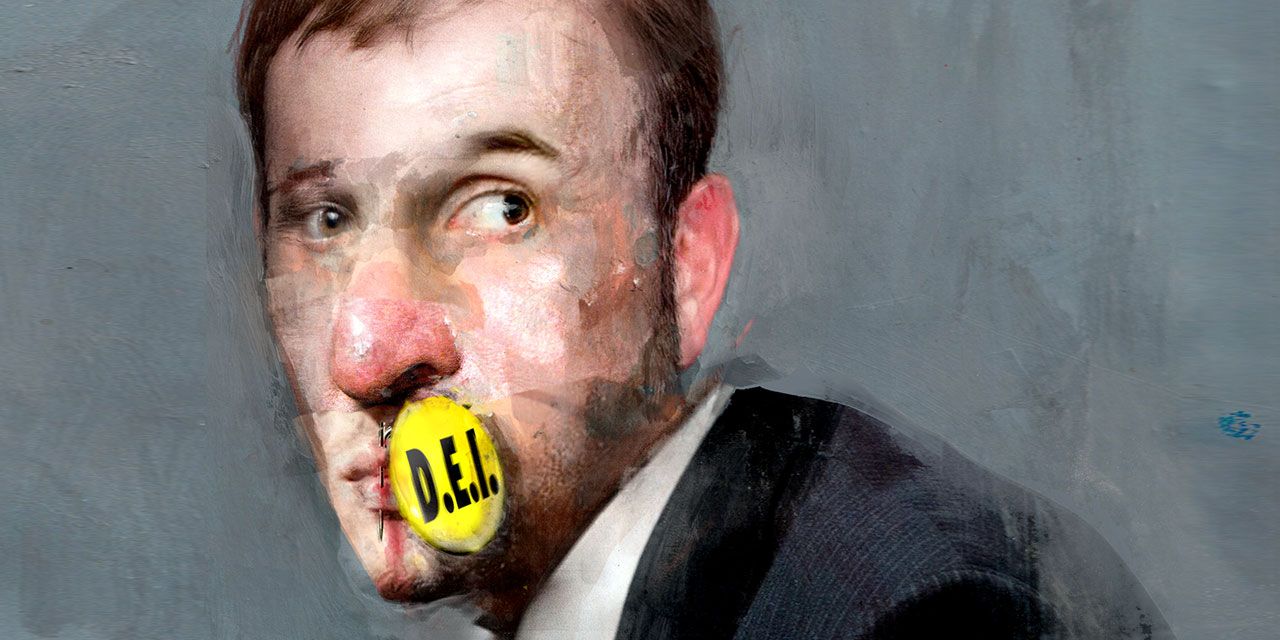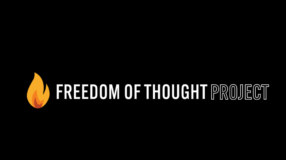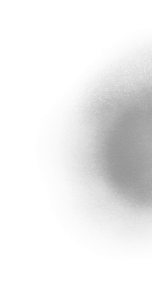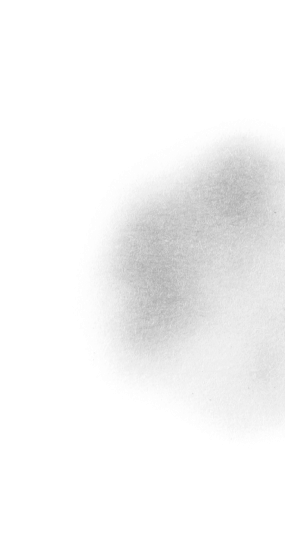Law, Betrayed

Identity’s triumph over argument in legal education undermines democracy.
By: John O. McGinnis
Law schools matter. They serve, after all, as the gatekeeping institution of the legal profession—a key occupation in a democratic republic. Such a republic depends on the core notion of being a “government not of men, but of laws.” A government of men controls by arbitrariness; a government of laws controls through transparent rules that allow citizens to make choices over time. It’s essential that law be protected from political caprice.
But laws are often not entirely clear, and men and women legitimately dispute their content and meaning. A central purpose of the legal system is to clarify these rules through adversarial presentations, leading to authoritative decisions by neutral tribunals. Just as the adversary system perfects the rule of law, so a robust culture of free speech and inquiry perfects the adversary system. What the best arguments are, or even what makes an argument best, is often itself unclear and disputed. A culture of exploring arguments vigorously before they reach court, without fear of retaliation, complements the adversary system and improves our governance.
Any free society needs the rule of law, the adversary system, and a culture of free speech and inquiry in law, but this is particularly true of the United States. Nearly two centuries ago, Alexis de Tocqueville observed of the American republic that almost all political issues there became legal issues, and that remains the case today. It’s the law that preserves the U.S. Constitution’s balance of powers, preventing tyranny.
When English departments, say, are consumed by the politics of identity, they marginalize mostly themselves. The classes they teach no longer provide students with analytic skills, and the books they assign no longer stir student souls. By contrast, law schools remain important to society, whatever their quality, because lawyers remain essential to a modern market democracy. At their best, law schools facilitate responsible advocacy and inculcate a respect in future lawyers that law isn’t simply politics by another name, but instead the basis of a rule-based order needed for human flourishing. If law schools lose sight of this, society suffers.
Today, many, if not most, law schools, like English departments, have become ideologically and structurally committed to the Left, especially on issues of race and gender. Since the new ideology of race and gender claims to affect almost everything, almost everything that law schools do is now distorted; the freedom of speech and inquiry that makes the adversary system work for society’s benefit is threatened. A focus on identity rather than argument leads directly to cancel culture—even at law schools, where debate should be central, because ideas that some believe threaten identity are rendered off-limits. And the circle of cancellation is ever widening: Stanford students shouted down Judge Kyle Duncan and prevented him from speaking at a recent Federalist Society event, not even because of what he was to talk about there but because of his past writings on other subjects.
Liberal professors have predominated in law schools for a long time, but their dominion did not conflict with the adversary system. These professors remained committed to hearing ideas with which many liberals disagreed, and they appreciated the importance of separating rules from politics. These older-style liberals may have pursued “social justice” in their legal work, but they did not impose a definition of it on their schools. Further, the social justice that they sought—more power for labor unions, say, or higher taxes on the rich—was compatible with freedom of speech and inquiry about such things. Nowadays, by contrast, the rise of political commitments focused on identity in law schools condemns many statements of fact and value as part of the subordination of women and minorities. Freedom of speech and inquiry gets rejected as oppression.
Many forces are making law schools more monolithically left-wing.
First, the relentless emphasis on race and gender concentrates law-faculty hiring disproportionately on increasing the representation of women and minorities. As a major recent study from Stanford’s Adam Bonica and several coauthors, “The Legal Academy’s Ideological Uniformity,” shows, this imperative pushes law schools leftward because the minority and female hires tend to be even more progressive than the median law professor, who is already a liberal by ideology. This effect is likely especially pronounced in the politically salient area of public law. (In private law, minority and female candidates remain relatively scarce.) Diversity therefore helps entrench ideological uniformity on public matters vital to the nation.
Because of the greater ideological uniformity in the schools, some professors—younger ones, particularly—feel no pressure to present (other than to ridicule) ideas important to today’s legal adversarial system, such as the theory of originalism, which maintains that constitutional provisions should be interpreted in the way they were publicly understood. Yet originalism is a dominant, if not the dominant, theory of the majority of current Supreme Court justices.
“Even liberal professors have said that they shun certain subjects in their courses, fearing the hostile reaction of some students. ”
At one time, law school courses were largely Socratic, where professors questioned students and brought forth many views on the correctness of a case. The Socratic Method modeled both open inquiry and reasoned disagreement. Today, the method is used much less. One reason is that it has been attacked as unfair to women because of the claim that they are less likely to speak up than men. Another is the fear that more freewheeling instruction may lead to unplanned and potentially controversial remarks. It is safer to lecture, but lectures fail to inculcate the same respect for inquiry and dispute.
Even liberal professors have told colleagues that they shun certain subjects altogether in their courses, fearing the hostile reaction of some students and their potential complaints to the university administration. And, of course, it’s rarely as easy for professors, were they willing to defend the other side in class, to make as persuasive a case for ideas they oppose as for those they espouse. The combination of ideological uniformity and self-censorship creates a culture alternating between conformity and avoidance when contentious legal subjects arise.
One example here can stand for others. George Mason University’s David Bernstein recently published a comprehensive overview of government racial classifications, showing how capricious they are. George Will deemed Bernstein’s book, Classified: The Untold Story of Racial Classification in America, perhaps “the most important book of 2022.” But despite the endless talk at most law schools calling for more conversation about race, only a single law school has invited Bernstein to a faculty workshop or public lecture to discuss his work, even as thousands of such workshops and lectures are held yearly.
Second, law school administrations now pressure faculty to be more left-wing—on race and gender, above all. Many require professors to submit a statement about how they are advancing diversity, equity, and inclusion (DEI) as part of consideration for hiring or raises. At some schools, DEI administrative staff who are not faculty now participate in interviews with job candidates.
Pursuing DEI is a thinly veiled code for the leftist project on race and gender. Thus, adding a unit on how a particular body of law systematically oppresses minorities and women counts positively on a DEI statement, as would scholarship that argues for a more race- and gender-conscious society. Articles on the virtue of color blindness, though, would not count and might even be disqualifying. Such statements also encourage faculty to add units on race and gender to every aspect of the curriculum. Conservative, libertarian, and even some traditional liberal legal scholars obviously can’t compete on this terrain. Given the need for freedom of thought and speech in law schools to facilitate the rule of law, mandatory DEI statements directly threaten the law school’s true mission.
Supine compliance with such statements shows how many legal scholars have subordinated long-standing principles of academic freedom to politics. Imagine if a law school mandated that faculty members or potential hires explain how their teaching recognized the United States as an exceptional country, in order to increase bonds among students—one can only imagine the howls coming from many law professors and the elite press about the imminent danger to academic freedom. Yet with these mandatory DEI statements, little or no such resistance has occurred, even though the immediate past president of the American Association of Law Schools purported to be a civil libertarian.
A third factor is a broadening range of efforts to punish or discourage troublesome speech or thought, alongside attempts to institute or encourage the proper ideas. Some prominent school deans, for example, are instituting disciplinary proceedings for disapproved speech about race and gender. Recently, Georgetown’s law school’s administration suspended and then investigated a newly hired lecturer, Ilya Shapiro (now with the Manhattan Institute) for a tweet about Biden’s decision to limit consideration for his first Supreme Court pick to black women. Shapiro deleted his inartful tweet and clarified that his point was that making race a key factor in the decision was incompatible with making the best choice on the merits—something that a charitable reading of the original tweet would have recognized.
Georgetown reinstated Shapiro after a four-month delay, only after deciding that he wasn’t yet a school employee at the time of his offending tweet—an analysis that could have taken ten minutes. The delay likely was a way to inflict a punishment that even Georgetown’s speech-unfriendly rules didn’t permit, and thus discourage other professors from speaking at all about race or gender from a nonprogressive perspective, or to avoid the wrath of students, who had left campus shortly before the decision was announced. The administration was guilty of gross incompetence, vindictiveness, or, at best, cowardice. The Shapiro contretemps was no isolated incident at Georgetown. The administration also fired an adjunct who had expressed angst that black students tended to be at the bottom of her class academically. Such censorious actions chill any empirical or normative discussion of race that doesn’t fit the Left’s agenda.
The dean of the University of Pennsylvania’s law school has called for his university to discipline law professor Amy Wax for various reasons, including for making statements that—as Brian Leiter, a famously liberal legal philosopher, has noted—are obviously expressions of extramural opinion, protected by traditional norms of academic freedom. Some of the dean’s charges show how ideological orthodoxy degrades his own scholarship. He complains in his bill of particulars against Wax that she referred in class to an interview with conservative British politician Enoch Powell—a grave offense, in his view, because of Powell’s 1968 “River of Blood” speech opposing mass immigration, which some deem racist. But as legal scholar Seth Tillman shows in a devastating review of this charge, the dean offers zero support for the disputable assertion that the speech was racist, let alone that the interview was bigoted.
Law schools also sustain conformity by holding one-sided panels on critical issues. After Dobbs, one of the most important constitutional law decisions in a generation, many law schools, including my own, hosted panels or even entire conferences featuring only critics of the decision. The American Association of Law Schools—an organization that supposedly represents the entire law professoriat—held a showcase panel on Dobbs, again with only opponents. The orthodoxy on race and gender resembles a catechism more than serious intellectual inquiry.
Diversity, equity, and inclusion offices also run programming on leading legal controversies, and—no shock here—they’re almost never diverse ideologically. This uniformity signals that only one set of legal views is acceptable, curtailing the debate crucial to prepare lawyers for an adversary system. The Stanford DEI official’s statement urging Judge Duncan to reconsider whether his remarks were worth saying hardly comes as a surprise. The mission of many DEI offices is to sustain a university structured around identity, not debate and inquiry.
The American Bar Association’s Council on Legal Education is yet another battalion for progressive orthodoxy. For instance, it recently imposed (at the request of law school deans) mandatory antibias training—the first such accreditation requirement unconnected to learning the content of law or legal practice. A group of the most distinguished chaired professors at Yale, almost all of them traditional liberals, saw this for what it was: an attempt to “institutionalize dogma, mandating instruction in matters that are unrelated to any distinctively legal skill, hence intruding on the right and obligation of every professor to determine what to teach in a class and how to teach it.” How could this new requirement not influence the interpretation of laws going forward?
Some observers minimize worries about the leftist orthodoxy of law schools, arguing that the main victims are liberal law students, as they no longer hear opposing arguments and thus won’t be prepared for the real world outside the university bubble. But the damage far exceeds that inflicted on left-wing lawyers.
For starters, these students are bringing the politically intolerant atmosphere of the law schools with them when they enter the workplace. Taking positions on the conservative side of a case, or defending conservative Supreme Court decisions, can now lead to exile from top law firms worried about recruitment. At Kirkland and Ellis, for example, Paul Clement—the leading Supreme Court advocate of his generation—was rewarded for winning the most important Second Amendment cases in decades with an ultimatum: drop your clients or leave the firm. His legal partner Erin Murphy was also given this directive. Hogan Lovell fired a longtime lawyer after she made colleagues uncomfortable by defending Dobbs. One of the core ideas of our legal system is that clients with plausible arguments deserve representation, so as to vindicate the rule of law. But now, some plausible ideas apparently don’t deserve representation.
Ideological orthodoxy has also undermined the rule of law by alienating right-leaning law students. Conservatives have traditionally been strong defenders of following formal rules, forging an anchor for society amid the turbulent churn of politics. But many more on the right are now rejecting these formal methods in favor of legal approaches that will allow political actors to choose the interpretation that best advances their view of the common good. This abandonment of the ideal of legal neutrality isn’t hard to understand—conservative students now experience law schools where admission is suffused with blatant considerations of race and ethnicity, where right-leaning professors face discrimination, and where mobbing against conservatives is often tolerated. Neutrality starts to seem to such students a suckers’ game, with the Left using it as a facade to advance its partisan objectives.
Racial preferences also contribute to the law school orthodoxy. They create constant pressure for replacing the previously meritocratic practices of law schools. Those admitted because of preferences will probably perform less well academically than those admitted under generally applicable standards. This result follows logically from the fact that the standard measures that law schools use for admissions, such as the LSAT and college grades, predict first-year grades.
Past studies of student performance, broken down by race, confirm this. The last comprehensive one that I could find appeared in the Stanford Law Review. Two professors at Yale Law School, neither one a conservative, summarized its findings: “With the exception of traditionally black law schools (where blacks still make up 43.8 percent of the student body), the median black law school grade point average is at the 6.7th percentile of white law students. This means that only 6.7 percent of whites have lower grades than 50 percent of blacks. One finds a similar result at the other end of the distribution—as only 7.5 percent of blacks have grades that are higher than the white median.” Based on this study, the professors acknowledge that blacks’ grades are “startlingly low.” While the data are from the 1990s, we have no reason to believe that anything has changed since, even if it’s impossible to be sure of the performance of any preferentially admitted racial and ethnic group, due to the absence of publicly available statistics. The disappearance of transparency itself suggests how preferences can corrupt the academic enterprise.
Of course, we wouldn’t expect different races and ethnicities to perform differently on average if schools admitted only individuals with LSAT scores and undergraduate grades comparable with their classmates. Imagine if Cal Tech had admitted liberal arts students like me as undergraduates, perhaps on the notion that, if successful, I would be the first member of my family to become a scientist. I was a decent enough science student, but not nearly as good as others at that elite university; students like me would likely have struggled—and probably resented it. But the preference regime ignores or masks such realities.
Many, if not most, of the prestigious law reviews now consider race and ethnicity in selecting some of their editors, as well. The effect of selecting editors based on identity has skewed selection of articles even further left than what otherwise might be the case. And many journals now ask that authors submit information about their race, gender, and sexual orientation before the journals consider the articles.
One result is that many articles defending niche progressive projects—the abolition of prisons, say—now make regular appearances in elite journals. Placement of articles in prestigious journals was once a constraint on ideology trumping meritocracy in faculty hiring, as there was substantial, if imperfect, ideological neutrality in the journals’ judgments. That constraint is considerably weaker today and shows how the decline of academic meritocracy contributes to a decline in epistemic openness and ideological diversity.
Any differential performance among racial and ethnic groups, which students themselves may recognize, needs to be explained. Hence critical race theory falls on fertile ground: systematic racism must explain away any disparities that actually are a direct consequence of skewed admissions. Critical race theory, in my view, is built on weak empirical foundations; but it gains academic prominence in part because of the institutional setting created by preferences.
Racial preferences also generate pressure on DEI offices to address the angst caused by differential performance. Some of these offices allow students to file discrimination claims against their professors, charging them with racially biased grading in the event of poor scores. At one university, for instance, so many claims and counterclaims have been filed that the offices themselves do not have the staff to oversee them; instead, they farm out the work to outside law firms. But even if most claims get dismissed, this system alienates faculty from students, leads to defensive instead of accurate grading, and worsens the atmosphere of intolerance toward conservatives.
Does the Supreme Court’s conservative shift give us a reason for hope? If the Court strikes down racial preferences later this year, as many expect it will, and law schools comply with its ruling, one cause of intellectual closure will dissipate. Of course, it would take time for the effects to work through the system. And doubtless many faculties will resist applying the law. Indeed, many law professors may play the part of Oliver Wendell Holmes’s “bad man,” who has no interest in complying with the law as an intrinsic good but will do his best to evade it, so long as he isn’t sanctioned.
This year, the ABA’s Council on Legal Education is proposing to eliminate the requirement that students take the LSAT. This would represent a striking departure from traditional admissions criteria, but it anticipates an adverse ruling on schools’ ability to engage in racial and ethnic discrimination. Schools could then drop a test that predicts success in law school, but on which the beneficiaries of ethnic and racial preferences perform poorly, making it easier to camouflage the continued use of preferences. Thus, the transformative effect on law schools of a Supreme Court ban on preferences may have to await a Republican administration in Washington willing to investigate institutions that maintain preferences under new guises.
Meantime, state legislatures can act, but they should avoid misguided efforts. It is a mistake for legislatures to mandate hiring conservatives: schools should not inquire into the ideology of those they hire but choose on merit. Ending tenure in public universities, as some Republican-controlled state legislatures demand, would harm the quality of that state’s institutions because the best professors may leave for places with tenure. And such a policy is counterproductive from the point of view of promoting ideological diversity: conservatives are more likely to get purged than liberals by any tenure-review process run out of the university.
But state legislatures should cut off funds for hiring bureaucrats with DEI functions. This reform would be popular because it would save money, too. Heather Mac Donald has detailed how many DEI bureaucrats earn hundreds of thousands of dollars in salary. The less politically charged atmosphere that would result from the abolition of DEI might lead other schools to move in a similar direction. And if a Republican does win the White House in 2024, the Department of Education could make schools’ eligibility for student loans contingent on eliminating these bureaucratic functionaries.
Today’s Supreme Court may be more dedicated to separating law from politics than it has been in decades. But the Court’s decisions will be considered legitimate in the long run only if they have some grounding in the general legal culture. Legal commentators are the equivalent of theater critics for the Supreme Court; not surprisingly, given the ideology and jurisprudence of most law professors, the critics give the nation’s highest court uniformly bad reviews.
Of course, the Court itself speaks, through its opinions, as a teacher of the republic’s principles. But now, a formalist Court and the results-oriented leftist legal culture are battling for control of the law. If law schools continue to be a redoubt of left orthodoxy hostile to dissent, they will send out generations of law students who regard much of the law that maintains our constitutional order as an alien virus that must be ejected from the body politic.










